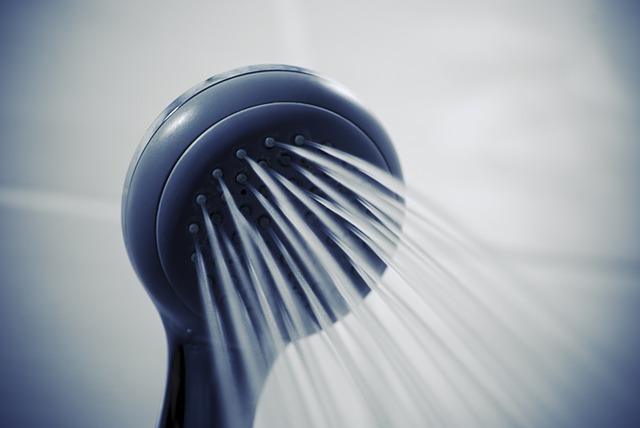Archive for January 2022
Range of Motion Where it Matters: Protecting your Neck
Few places are as important for a range of motion as the neck
Imagine that your neck had no independent articulation. While this may perhaps benefit people who suffer injuries from movement, it would make living a real pain in the…you guessed it. You would have to move your entire upper body to see from side to side or bend backward and forward to see up and down. For many people, the unfortunate reality is that injury or repetitive trauma has reduced their range of motion and makes normal tasks like looking side to side painful.
What is the normal range of motion in the neck?
There are four primary movements:
- Flexion: head to chest
- Extension: looking up toward the sky
- Lateral Bending: ear to shoulder
- Rotation: turning your head so that your chin is over the shoulder (or thereabouts)
What limits the range of motion in the neck?
Injuries to soft tissue in the neck, degeneration or injury to cervical vertebrae and spinal joints all make it difficult to move your neck without experiencing pain. Once you stop moving your neck, the muscles normally activated for movement cease to be used and start to atrophy, and range of motion is limited further. Injuries can be the direct result of trauma, from a car accident for example, or from a slow wearing down over time, for example from chronic poor posture.
What can we do about maintaining the range of motion in the neck?
At our office, we help you preserve a range of motion in the neck. A primary malefactor is poor posture- in particular forward head posture which sees the head positioned forward of its balanced point atop the spine. By resetting your posture, restoring spinal alignment through the cervical vertebrae, and adding strength and tone to the muscles of the neck and upper back, we achieve positive effects in your neck’s range of motion. If you are interested in leaving neck pain behind, give our office a call to schedule an appointment today.
Stretching in the Shower: An Excellent Idea
Why shower and stretch?
The shower is as good a place as any to have a stretch. It has the advantage of being a calming environment and, as the hot water cascades down on your weary muscles, why not turn up the relaxation one more notch by throwing in a couple of simple stretches? A few things to keep in mind: focus on being mindful by breathing deeply and avoid letting yourself become too dizzy; make sure you are properly hydrated and that the water temperature is set comfortably. Cool water has a tendency to tighten mussels while warmer water tends to loosen them.
A few shower-worthy stretches
- The clasped-neck stretch: Clasp two hands on the crown of your head and gently lower your head down toward your chest, effecting a double chin. Hold for 5-10 deep breaths.
- Release the shoulders: stand as upright as possible and squeeze your shoulders together. Hold 3 deep breaths, release and repeat. To add to the stretch and open up your chest cavity further, spread out your arms behind you as you squeeze.
- The back-bend: Stand upright, place your hands on your lower back/upper buttocks with fingers pointing upward and arch your back. Hold 5-10 deep breaths, release and repeat.
Warm water and stretching both have the advantage of releasing your muscles from tension. After a shower and a stretch, your body will be at one of its most relaxed points possible during the day. By practicing deep breathing, you are also calming the mind. This makes the shower and stretch combination a powerful tool for people who have difficulty falling asleep.
Stretching (and showering) is an integral part of our wellness plan
We believe that starting with 10 minutes of dedicated stretching a day can set you on a path toward doing great things for your body. Always stretch where you feel most comfortable- for some people this is in public, for others it is in the shower. Find your happy place and stretch it out! If you need help addressing long-standing muscle tension, back pain or nerve dysfunction related to subluxation, give our office a call to schedule an appointment today.
Study Finds Cannabis Compounds Prevent Infection By Covid-19 Virus
Our science research dollars are not just up in smoke this time. The medical community seems to have found another tool to fight the spread of COVID-19. Researchers at Oregon State University have published a report that claims, “Cannabinoids Block Cellular Entry of SARS-CoV-2 and the Emerging Variants.”
I’m sure more research will be needed and getting volunteers will be easy. If this is true the Cannabinoids industry will be having be having some fun with this new information. You can read a quick summery on the Forbs website linked here:
It looks like even the Variants can’t get past the has barrier. “Although further research is needed, van Breemen noted that study shows the cannabinoids could be developed into drugs to prevent or treat Covid-19.”
So for a bit of fun, when the office asks how high are you? You can say back, “no man, It’s Hi how are you! I did my research on the internet and now I’m fighting the pandemic.” And blow some cure in his face. Or maybe let your doctor prescribe it first.
Did you party too hard on New Years? Find the Sleep you Deserve
Finding it hard to stay asleep?
The sounds of the city can make falling asleep difficult enough, but many people struggle to stay asleep because of their sensitivity to noise. It is easy to be a deep sleeper- the kind who sleeps through smoke alarms- when you are young, but as we get older, we succumb to external and internal factors that make it difficult to maintain a healthy, restful level of sleep. While genetics and the possibility of a sleep disorder are also at play, there are many things you can do with your lifestyle to limit the incursions of noise in your sleep life.
Training yourself to become a deeper sleeper
The first key is setting yourself up for success: this means limiting factors that are antagonistic from the inside of your body. Alcohol, while sedative by nature, does not let you achieve deep restful sleep and once its effects wear off, you often find yourself awake and uncomfortable. Likewise, caffeine has large effects on your sleep, where the effects can be felt up to 8 hours after consumption. One final factor that may be preventing you from sleeping is the presence of screens before bed- the blue light that emits from your cell phone has been shown to interfere with the feeling of tiredness that eventually leads to sleep.
What else can I do to stay asleep?
- Melatonin, a natural chemical that is produced by the brain to influence sleepiness, can be purchased over-the-counter at your local pharmacy. Giving your melatonin levels a boost helps to encourage sleep.
- Magnesium and calcium supplements: the two combined have been shown to effectively treat insomnia.
- Control your sleep environment: keep it dark and cool. The cave-like sensation helps to switch off the brain- but don’t worry you can stay warm and happy underneath the sheets.
- White noise: something that many people do to regulate the many noises of the night. People use different white noise simulators- rainfall, river or rainforest are all popular options.
Is pain stopping you from sleeping?
Pain is another factor that prevents people from falling and staying asleep. If you have pain in your back or tight, tense muscles, they could be the main reason that you are not finding the sleep you need. Give our office a call to get to the root of the pain and create a plan for rehabilitation today.



